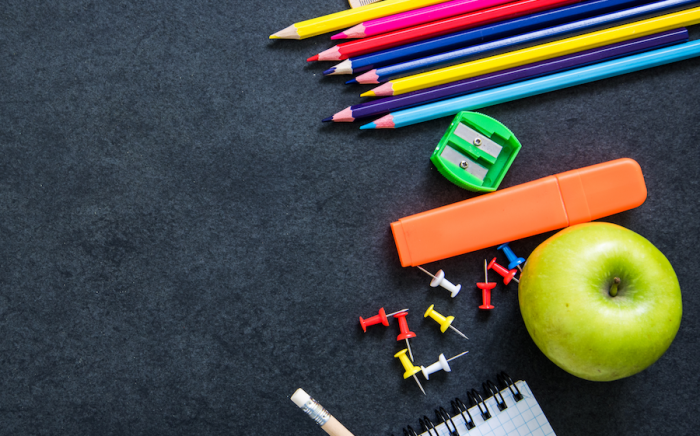Table of Contents
Learning from home is a difficult adjustment to make, both for parents and children. Since the COVID-19 outbreak has forced school closures, UNICEF reports that nearly 1.6 billion children are unable to attend school in person. With all of our daily schedules being interrupted it can be tough to rebuild a routine from the ground floor, all while keeping children motivated.
Luckily, companies have stepped up to provide free educational resources for children, parents and teachers to supplement in-person schooling for the time being. Whether you’re looking for lesson plans or are eager for your children to be productive and try something new, the variety of resources we’ve collected can offer both.
Before jumping in, it’s important to follow a few tips to ensure both you and your children are getting the most out of this new experience. Remember that it’s okay if you cannot recreate school for them. As long as you can provide some structure to your childrens’ daily lives, they will benefit.
Tips for Learning From Home
- Keep a routine: A schedule will help everything feel more normal. Crafting a daily routine to carve out time for learning will help keep you and your children on track.
- Make a designated learning space: Try to avoid turning your childrens’ beds into their school desks. If you can, create a specific space for your children to work so that they can get into the mindset to learn.
- Remember to take breaks: Don’t skimp on snack time in between lessons. It’s vital to keep energy levels high to retain information.
- Set goals: Everyone loves reaching a goal. Motivate your children by creating goals and rewards to encourage them to stay with it.
10 Free Educational Resources for You & Your Children
Here are a few of our favorite free educational resources for children that are available now.
National Geographic Kids Science Lab

Give your kids a break from the screen and turn your home into a science lab for the day. National Geographic has a site dedicated to science experiments, complete with video tutorials and articles to make the lesson feel complete. All of the experiments use household items that you may already have or are easy to order.
Brainpop
While schools are temporarily closed, Brainpop is offering free access to their lesson plans. The site covers a range of subject matters (English, Math, Engineering, Social Studies and Health) and focuses on one topic per day. Brainpop has created individual characters to connect with children on a more intimate level, and help them learn along the way.
Quill
Help your children sharpen their writing skills by trying the free activities and lessons offered by Quill. The site offers tons of free resources for children to work on their writing and grammar. Parents or teachers can determine the skill level of their students by first taking a diagnostic test. Though Quill requires you set up an account, you can preview a sample activity before signing up.
Duolingo
If a second language is a part of your kids’ curriculum, try Duolingo. The free website is an easy way to keep up with languages including Spanish, French and German. Everything is broken down into sections and tests, as users are meant to learn by doing. You can set goals for your children to earn an amount of points per day and even keep up with their friends who may be doing the same.
BBC Bitesize
BBC Bitesize is offering daily lessons for children ages 3 to 18 in both traditional subject matter and more practical skills. For instance, they have a wellness lesson that helps teens spot false information. The site is organized so that children can keep up with the daily activities and weekly challenges without being overwhelmed. The range of content also helps keep it interesting.
National Oceanic and Atmospheric Admin (NOAA)
Take your children under the sea through the NOAA virtual dives. Children can explore oceanic sanctuaries all over the country using the 360 viewing option. They will also learn the importance of conservation as they visit each place.
Scholastic Learn at Home
Since the school closures, Scholastic has provided free resources for children, parents and teachers to better equip them to learn at home. Parents can sign up for their newsletter to receive teaching tips while children, preschool up to 9th grade, can learn skills from around the globe. Scholastic offers videos for virtual field trips alongside stories, activities and articles.
PBS Learning Resources
Parents who want to keep their children on track can get help from PBS Learning Resources. PBS has curated free, standards-aligned content including skill-building videos, activities and lesson plans. You can browse by grade level and set standards to receive targeted content according to your childrens’ needs.
National Gallery of Art

Don’t forget to fit arts and crafts into your childrens’ daily activities. The National Gallery of Art provides a curriculum alongside corresponding lesson plans that you can perform at home. Based on grade level, the lessons focus on a specific style, artist or era. There are also downloadable packets for college level students and online courses are available.
Fun Brain
Take a non-traditional approach and get your children excited about learning with the games on Fun Brain. The site reinforces concepts through themed games, meant for various age levels. This is a great way to keep your children engaged while learning something new.
More Educational Resources to Help You at Home
As much as everything has been thrown into disarray, it is important to keep a certain level of normalcy, especially when it comes to your childrens’ education. In addition to this list, there are other resources available to assist parents as they help their children cope through the changes. It is a lot to take on, but knowing that there is help for you will ease the burden.
There are also other ways your children can stay engaged when they are not focusing on schoolwork. You can combine playtime and education by encouraging your children to play with toys, games and crafts that challenge them or help them develop a new skill.
If you’re on a strict budget, you can source your materials from home to make creations that the whole family will enjoy. You can also start saving by getting items at less than half the price through rebates.
The good news is, you don’t have to make all of the decisions yourself. Invite the children into the process to find what works for everyone.




